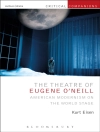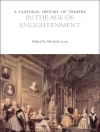In 'The Trysting Place: A Farce in One Act, ’ Booth Tarkington weaves a delightful narrative that juxtaposes humor with sharp social commentary. Set in a singular location, the play unfolds with brisk dialogue and clever misunderstandings, encapsulating the complexities of romantic entanglements and societal expectations of the early 20th century. Tarkington’s mastery of farcical elements is evident as he employs wit and irony to explore themes of love, deception, and the fleeting nature of human connections, all while maintaining a light-hearted tone that draws the audience into the unfolding chaos with each turn of phrase. Booth Tarkington, an influential American novelist and playwright, achieved critical acclaim for his incisive portrayals of American life. His deep understanding of human behavior and societal norms, shaped by his experiences in the Midwest, informed his writing. Tarkington’s works often reflect a tension between tradition and modernity, a theme prevalent in 'The Trysting Place, ’ showcasing his ability to navigate both comic and serious undertones within a familiar social landscape. This play is highly recommended for anyone seeking an engaging exploration of romance and farce within a historical context. Tarkington’s keen insights and vibrant characterizations promise a captivating theatrical experience, making it an essential read for enthusiasts of American theatre and anyone interested in the intersection of humor and social critique.
O autorze
Booth Tarkington, born Newton Booth Tarkington on July 29, 1869, in Indianapolis, Indiana, was a prolific American novelist and dramatist noted for his satirical and sometimes romanticized pictures of American Midwestern life. Tarkington attended both Purdue University and Princeton University, where he began to craft his literary skills. He first garnered public and critical acclaim with his novel 'The Gentleman from Indiana’ (1899). Throughout his career, Tarkington penned numerous novels, including 'The Magnificent Ambersons’ (1918) and 'Alice Adams’ (1921), both of which earned him Pulitzer Prizes for Fiction. His literary style is characterized by its narrative charm, keen social observation, and a sometimes whimsical or nostalgic tone, evident in works like 'Penrod’ (1914) and 'Seventeen’ (1916). Following the trend of expanding his repertoire, Tarkington also tried his hand in playwriting, which led to works such as 'The Trysting Place: A Farce in One Act’ (1907), showcasing his flair for light-hearted and comedic storytelling. Tarkington’s contribution to American literature laid the groundwork for future explorations of the class and societal change, particularly within the backdrop of the rapidly modernizing early twentieth century. He passed away on May 19, 1946, leaving behind a legacy that still resonates in the corridors of American literary history.












